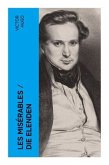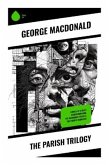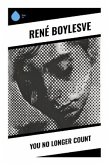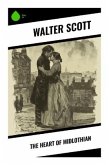Victor Hugo's monumental novel, "Les Misérables," is a profound exploration of justice, love, and redemption set against the dramatic backdrop of post-Revolutionary France. Through its sprawling narrative, the book intricately weaves the lives of its multifaceted characters, chiefly Jean Valjean, a reformed convict grappling with his past, and Inspector Javert, who embodies the relentless pursuit of law and order. Hugo's rich Romantic style infuses the text with lyrical prose and vivid imagery, while his socio-political commentary highlights the struggles of the impoverished, elevating the discourse surrounding class and humanity in the 19th century. As a towering figure of French literature, Victor Hugo was greatly influenced by the tumultuous historical landscape of his time, including the social injustices and political upheaval that informed his worldview. Born into a family involved in the Napoleonic Wars, Hugo became an ardent advocate for the oppressed, often reflecting these themes in his works. His conviction that literature could serve as a vehicle for social reform motivated him to craft "Les Misérables" as both a gripping narrative and a moral imperative. I highly recommend "Les Misérables" to readers seeking not just an enthralling story, but also a profound understanding of the human condition. Hugo's masterful narrative and evocative characters invite readers to reflect on society's moral dilemmas, making this classic a timeless and essential read.
Bitte wählen Sie Ihr Anliegen aus.
Rechnungen
Retourenschein anfordern
Bestellstatus
Storno








